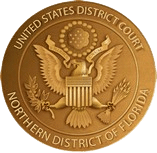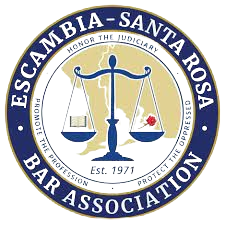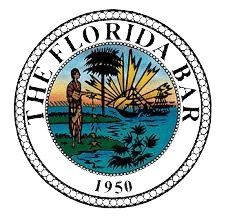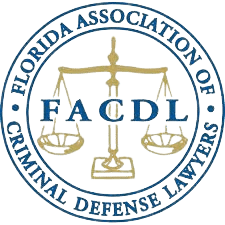
Disorderly conduct, sometimes referred to as “breach of the peace,” encompasses a wide range of behaviors that disturb public order. In Florida, the laws surrounding disorderly conduct are intentionally broad, allowing law enforcement to address various disruptive actions. However, this broadness can sometimes lead to misunderstandings or overreach, making it crucial to understand your rights and the defenses available if you’re accused of this offense.
If you’re facing disorderly conduct charges in Florida, consulting an experienced criminal defense attorney is your best option for protecting your future.
What Is Disorderly Conduct in Florida?
Under Florida law, disorderly conduct is defined as behavior that disrupts public order or peace. This can include actions that:
- Corrupt public morals: Behavior that violates widely accepted moral standards.
- Outrage public decency: Actions deemed offensive or inappropriate for public settings.
- Disturb the peace: Conduct that affects the peace and quiet of others.
- Involve brawling or fighting: Physical altercations in public spaces.
- Create a breach of the peace: Any behavior that incites or provokes disturbances in shared spaces.
Examples of disorderly conduct include shouting or causing excessive noise in public, public intoxication, fighting, or even engaging in nonviolent protests under certain circumstances. While these actions may seem minor, the consequences of a conviction can have lasting impacts.
Some acts of disorderly conduct could escalate to assault and battery, which carry steeper penalties.
What Are the Penalties for Disorderly Conduct in Florida?
Disorderly conduct is typically charged as a second-degree misdemeanor in Florida. If convicted, you could face:
- Up to 60 days in jail.
- Fines of up to $500.
- A permanent criminal record, which could affect employment opportunities, housing, or professional licenses.
The severity of the punishment often depends on the circumstances of the offense. For example, fighting in a crowded public area may result in harsher penalties than simply shouting in a quiet park. A strong legal defense can make a significant difference in minimizing or eliminating these penalties.
How Can I Defend Against Disorderly Conduct Charges?
Although disorderly conduct charges may seem straightforward, many defenses can be used to challenge the accusations. An experienced criminal defense lawyer will assess the specific facts of your case and determine which strategies are most applicable. Common defenses include:
1. Your Actions Were Protected By The Constitutional Rights
- Freedom of Speech: The First Amendment protects your right to express yourself, even if others find your words or tone unpleasant. For instance, shouting slogans during a protest may not qualify as disorderly conduct if it is part of lawful free speech.
- Freedom of Religion: If your actions in public are tied to religious practices, such as chanting or performing rituals, you can argue that your conduct was a protected exercise of faith.
In some scenarios, law enforcement may accuse you of ,a href=”https://pensacola.lawyer/resisting-arrest-lawyer-in-pensacola/” title=”Resisting Arrest Defense Lawyer”>resisting arrest along with disorderly conduct, especially at charged events like political protests.
2. You Were Not Behaving Offensively
- No Use of Offensive Language: If you didn’t use vulgar or indecent language, your attorney could argue that your actions didn’t meet the threshold for disturbing public decency.
- Nonviolent Actions: Nonviolent or non-threatening behaviors may not qualify as a breach of peace, even if others were annoyed or inconvenienced.
3. You Were Not Acting Intentionally
For a disorderly conduct conviction, the prosecution must show that your actions were intentional and designed to disturb public order. Defenses based on intent include:
- Mistaken Behavior: If your actions were misinterpreted, such as accidentally making noise, your attorney can argue that there was no malicious intent.
- Acting Under Duress: If you were forced to act a certain way due to external threats, this can serve as a valid defense.
4. You Were Not Acting With Malicious Intent
Certain circumstances can reduce or eliminate your culpability, including:
- Mental Incapacity: If you were unable to understand the nature of your actions due to mental illness, your attorney can argue for diminished responsibility.
- Age of the Defendant: Juveniles are often treated differently in the justice system and may qualify for alternative resolutions, such as diversion programs.
Why Should I Work with a Disorderly Conduct Defense Lawyer?
While disorderly conduct may seem like a minor offense, the long-term consequences of a conviction can be significant. A skilled criminal defense attorney can:
- Challenge the Prosecution’s Case: An attorney can argue that the behavior in question didn’t meet Florida’s legal definition of disorderly conduct.
- Identify Violations of Rights: If law enforcement acted improperly during your arrest, such as failing to follow procedural rules, your attorney can seek to have the charges reduced or dismissed.
- Negotiate Alternative Sentencing: In some cases, an attorney may secure alternatives to jail time, such as probation or community service.
How Mitkevicius Law Can Help You Fight
At Mitkevicius Law, we understand the nuances of disorderly conduct cases and the potential defenses available. Attorney Josef Mitkevicius has years of experience representing clients accused of minor and major offenses in Pensacola and throughout Florida. Whether you were involved in a misunderstanding or are facing unjust accusations, we’ll work tirelessly to protect your rights.
We will thoroughly review your case, challenge weak or insufficient evidence, and ensure you receive a fair trial. Our goal is to help you avoid jail time and maintain a clean record so you can move forward with your life.
Take Control of Your Defense Today
Disorderly conduct charges can feel overwhelming, but you don’t have to face them alone. With the right legal representation, you can fight back against these accusations and protect your future. Contact Mitkevicius Law today to schedule a consultation and discuss your case. Let us help you navigate the legal system and work toward the best possible outcome.
Call 850-361-2142 or use our online form to schedule your free consultation.





